Gaza Family Centers
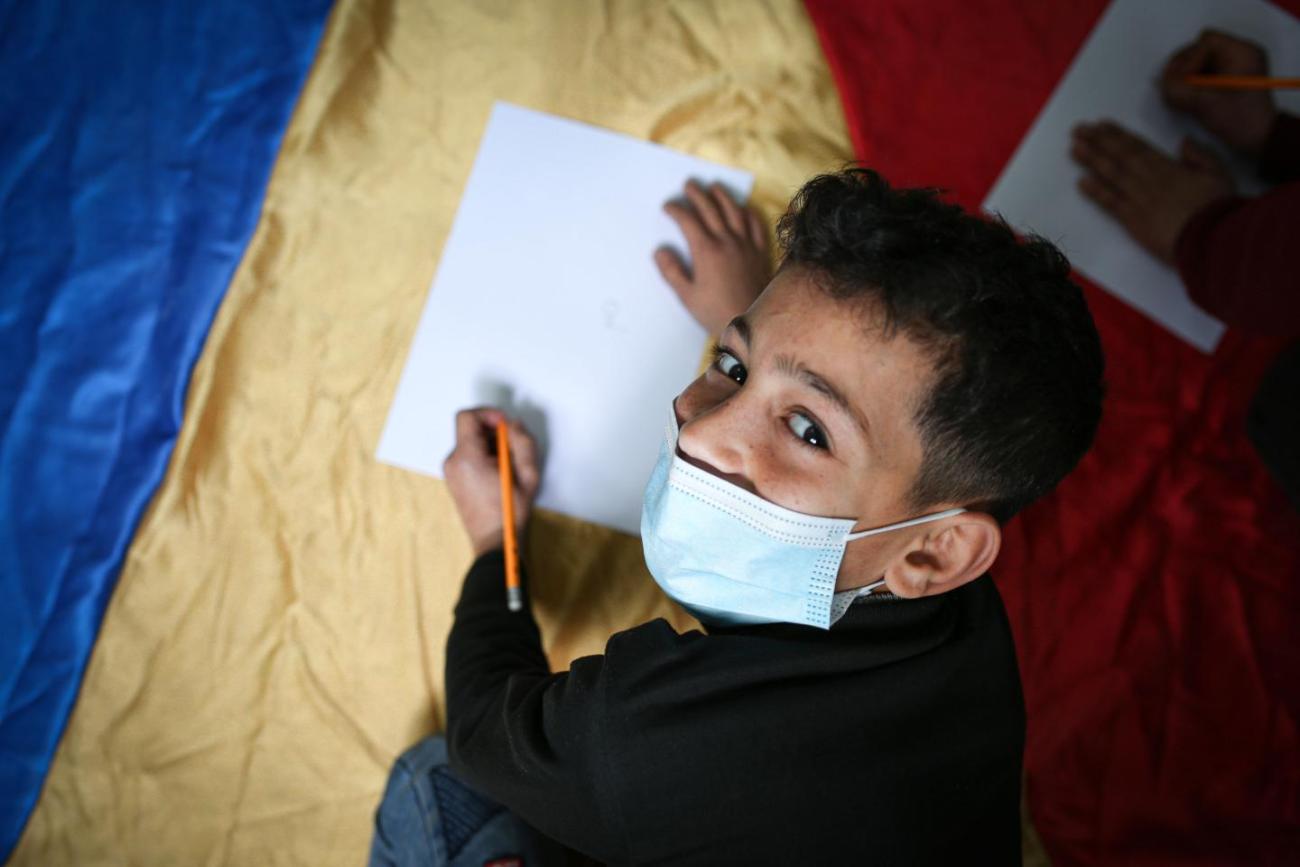
Addressing mental health distress in Gaza’s children.
Through the 12 Family Centers located throughout the Gaza Strip, since 2009 UNICEF and partners have offered integrated psychosocial support and child protection services to the boys and girls most affected by mental and psychosocial distress in the Gaza Strip, including children impacted by COVID-19. The protection services and life skills education we provide includes safe and interactive activities that are culturally and age-appropriate to help children and their families recover from stress and return to everyday life. To ensure a continuum of care, especially for the most vulnerable and affected children, case management services are provided that also enable referral for psychological and mental health support.
Strengthening child protection systems is a core priority of UNICEF’s work, as we strive to complement the efforts of partners that engage in humanitarian and development work. In response to both the protracted child protection crisis and recent events, UNICEF is now expanding its support of Family Centers in Gaza. These centers provide critical psychosocial support for children and families during emergencies, aiming to help them overcome difficult and traumatic experiences. Furthermore, they provide safe gathering points for families, offering spaces where children and their parents can come together for psychosocial care and support. Family Centers thus have proven to be a cost-effective solution for protection and psychosocial support. During any escalation in hostilities, Family Center staff have been at the forefront of delivering child protection services, ensuring referrals to essential health services and to remedial education support when advisable. Since January 2019, 33,600 children have received psychosocial support or had their specific case of mental health distress managed at a Gaza Family Center.
Family and community members receive assistance to help them better support their children in emergency situations. This includes awareness-raising sessions with the caregivers of vulnerable children, who are taught child protection measures that include topics such as positive parenting, psychological support for children, bed-wetting, early marriage, and child labor. These subject matters are informed mainly by the needs on the ground and respond to issues raised by the caregivers.
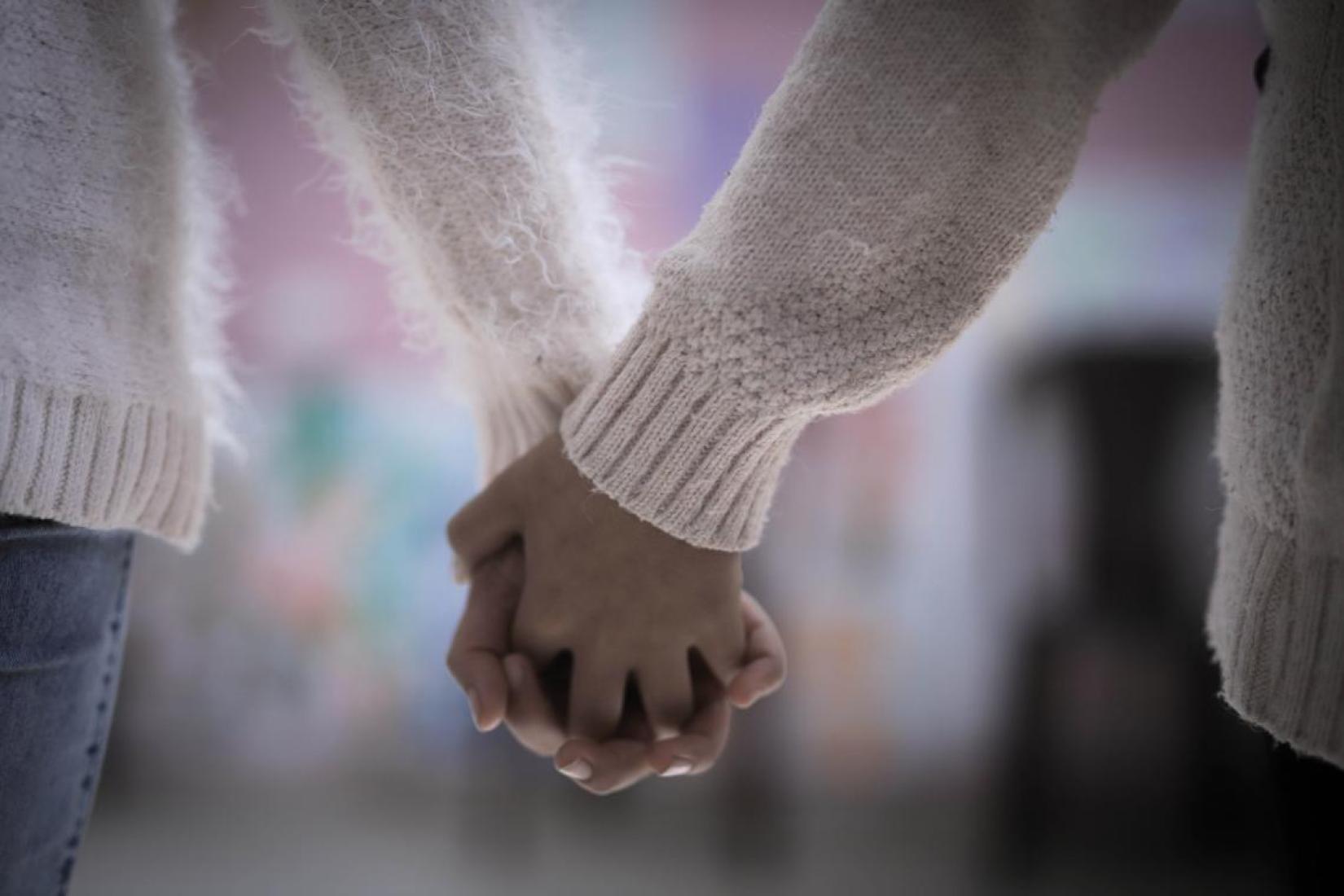
As explained by the children themselves, children in the Gaza Strip experienced traumatic conditions during the recent war:
“I hated night-time so much because the bombing happens at night. Bombs fall on the heads of people in their homes. The airplanes bombard randomly because they don’t see in the dark.” Ahmad, 10 years old
“I was afraid to go to the bathroom because I was afraid that rockets could be launched on us; so I used to take Mama with me to the bathroom.” Samira, 11 years old
“When they bombed the ground, our neighbors started screaming, and I got scared a lot when I saw the explosion and the fire. It makes me panic.” Rami, 9 years old
“I slept in Mama’s arms because of the bombing and because I was afraid to die.” Amira, 8 years old
“My family and I escaped and went to the school because they started firing at us from tanks; at the school they don’t bomb, but I was very frightened.” Sameer, 13 years old
“Every day, I prayed to God to stop the bombing and make the war stop. And when the truce came, we were very happy because the war was over.” Mahmoud, 10 years old
“Each time I hear a loud voice, I get frightened and terrified.” Rajaa, 15 years old
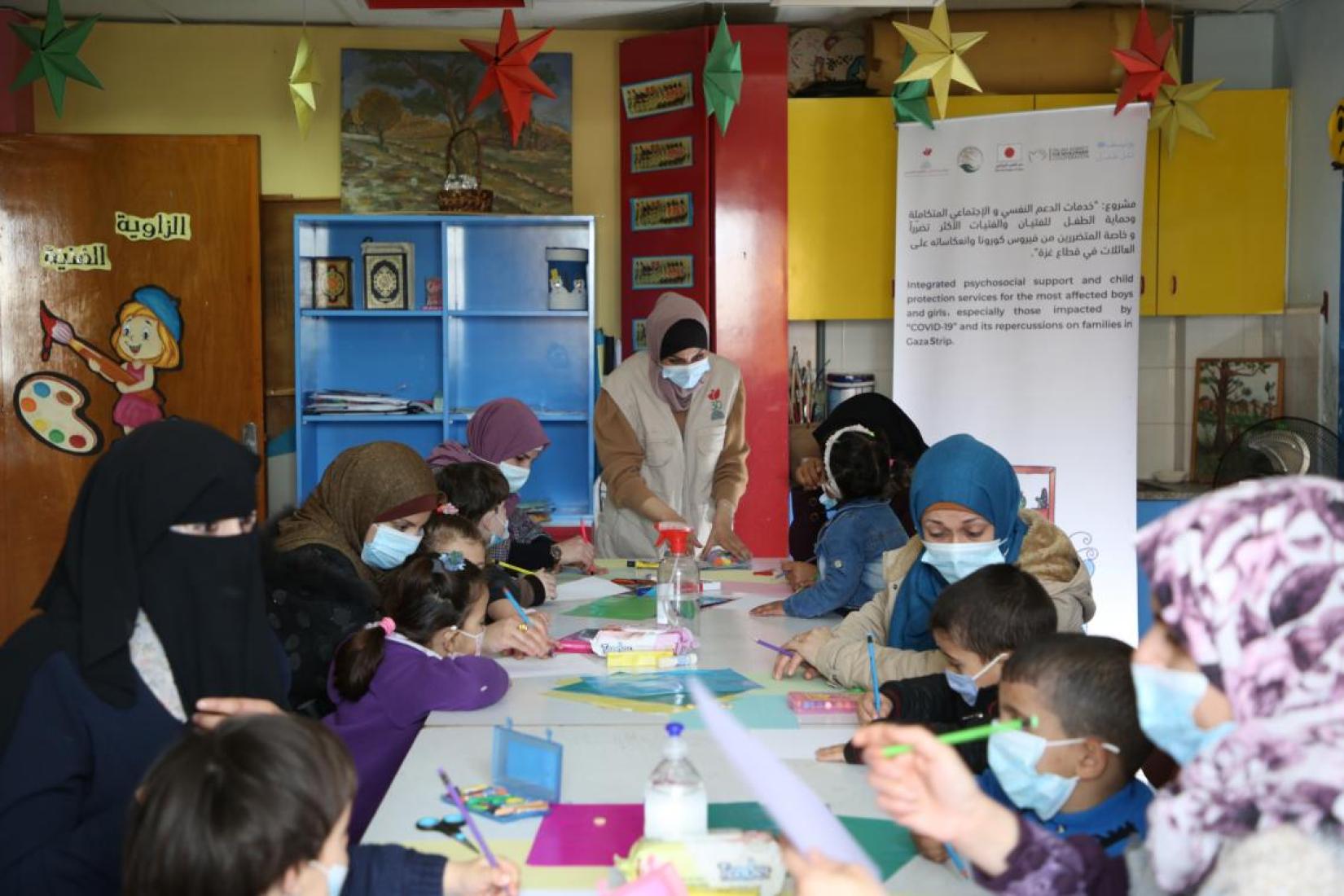
Mothers and their children during a physiological support session in a UNICEF-supported family center in the Gaza Strip
Prior to participating in Family Center activities, it is often reported that the children may have lost their temper or used violence to solve problems or assert themselves. After visiting a Family Center, however, children often report improvements in their skills and knowledge related to conflict resolution, time management, the ability to identify and express emotions, and relaxation methods they were able to use to calm themselves. Children also reported feeling less nervous and anxious and being able to deal more effectively with difficult and painful emotions. A high number of children, mostly girls, also reported feeling less shy and isolated and more confident in engaging with their peers and adults.
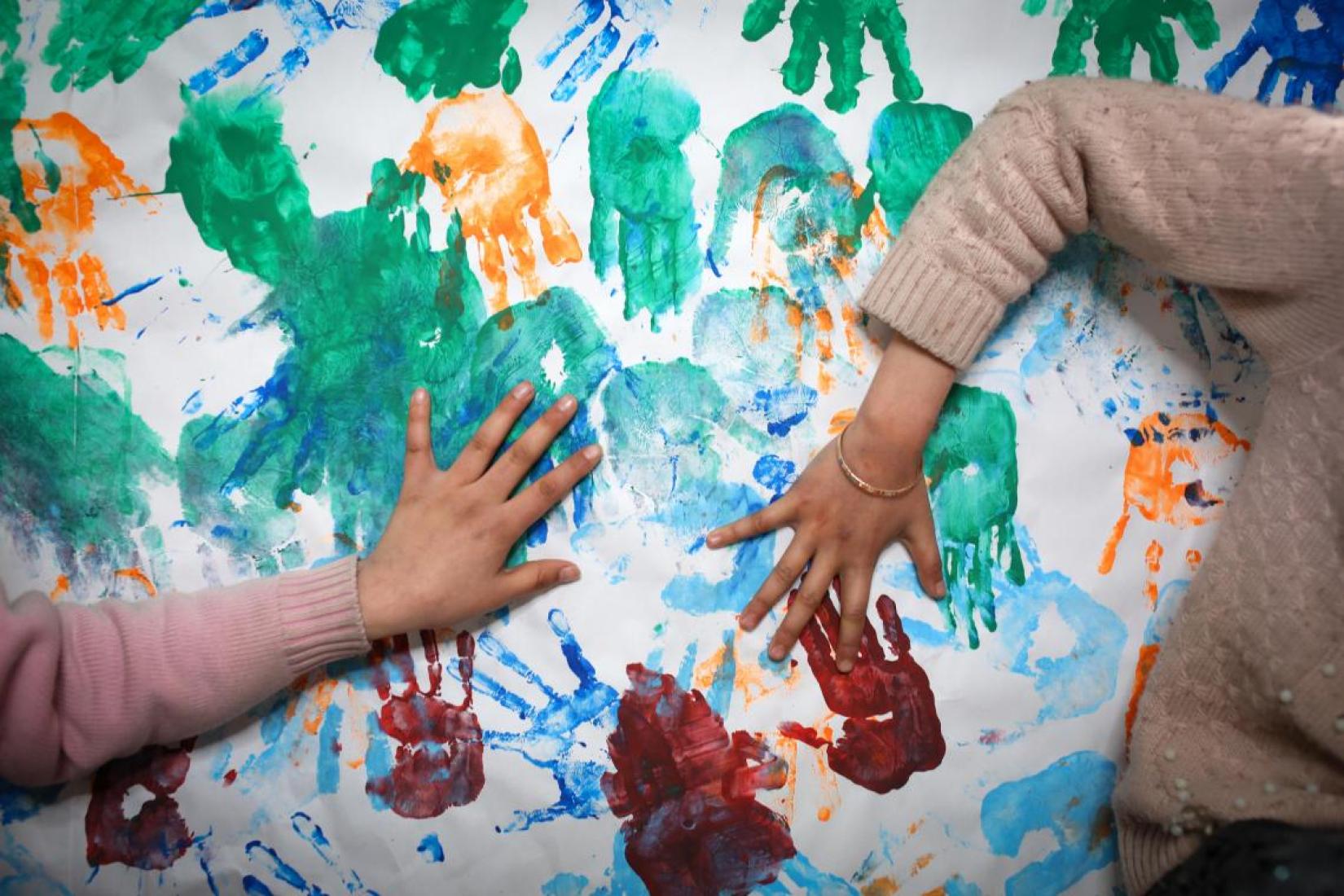
Here are testimonies from an evaluation conducted by UNICEF:
“I was beating my younger brothers and sister when they didn’t obey me and didn’t listen to my mother, but now this has stopped.” Eleven-year-old girl
“I had grown up learning that if you have a disagreement with someone, you must beat them aggressively. This way, you will win. But at the Family Center, I learned other ways of solving conflicts.” Thirteen-year-old boy
The testimonies below were collected from participants in a workshop that aimed to raise awareness of the dangers of COVID-19 and teach appropriate protection methods:
“We did not know we could have mitigated the psychological problems some of us experienced while quarantining after exposure to the coronavirus. The workshop showed us the correct ways to deal with such conditions and taught us how to deal with our children.” Umm Maher
The center provided speech therapy and helped ten-year-old Hanaa integrate with other girls through life skill activities, especially after the coronavirus had caused her mental distress.
“Two years ago, I began to notice that my daughter Hanaa had difficulties in pronouncing some words, which caused a delay in her academic level. I had no choice but to visit the Family Center to follow up on her condition. Since she started visiting the center, she has improved by 80 percent, thanks to the treatment she received from the counselor who follows up on her case.” Hanna’s Mother
“I love to see the development of my thirteen-year-old brother Mohammad and peek at him during the session, so I can apply at home what the counselor is doing as well.” Zuhair, who for the past two years has accompanied his brother Mohammad three days a week to attend speech therapy sessions at a UNICEF Family Center
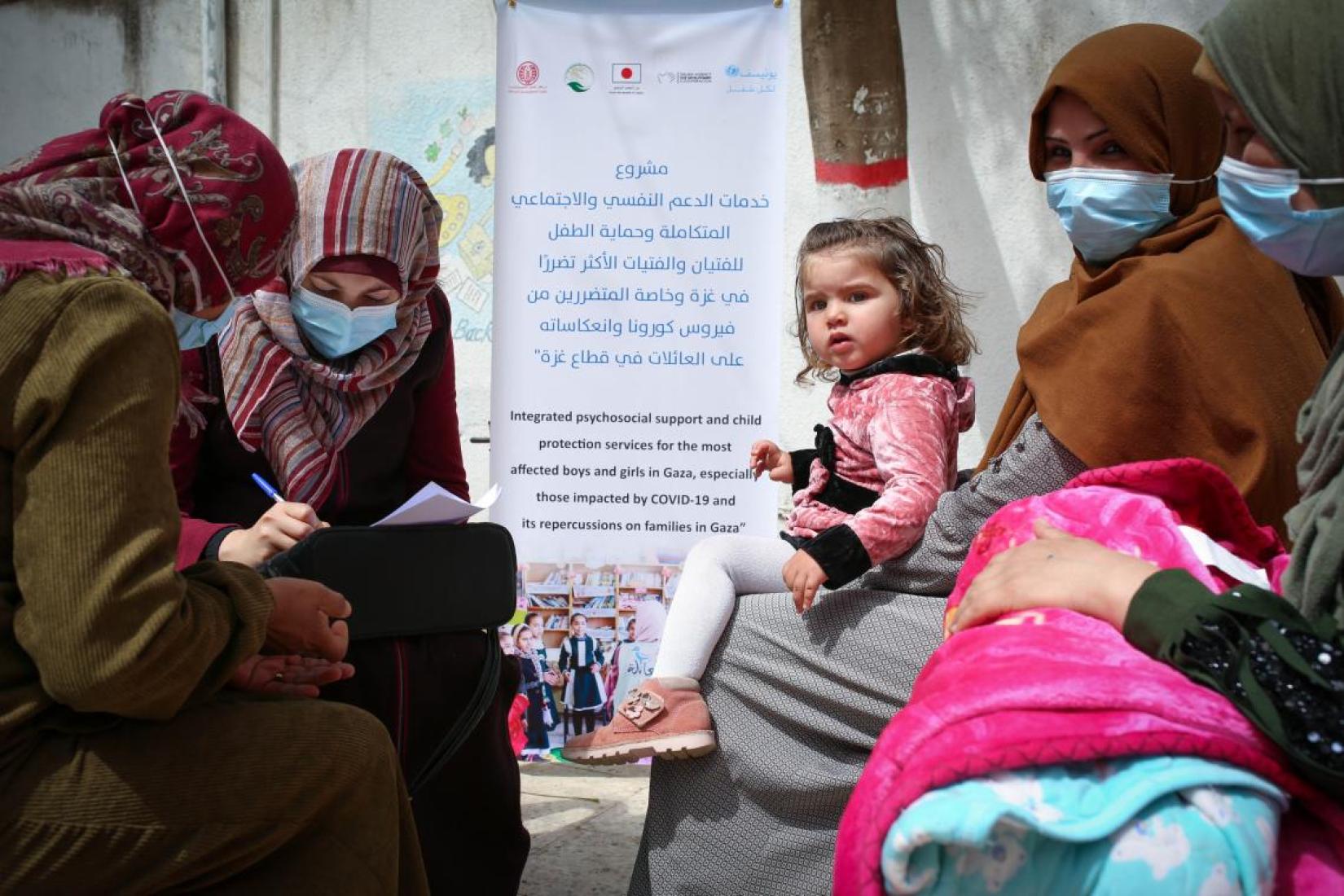
Mothers participating in a physiological support session for children and their families impacted by COVID-19 in a UNICEF supported family center in the Gaza Strip.
For a child aged 14 or over, the recent escalation was the fourth war that they have lived through. Now, more than ever, the children of the Gaza Strip and their families need support in managing the stress and mental distress. UNICEF and partners, through the Family Centers, are addressing some of the most critical cases, but ultimately this is only a fraction of the children in need of psychosocial support and assistance. What is needed is a holistic strengthening of the Gaza Strip’s child protection systems, of which this programme plays a part. The children of the Gaza Strip need to have hope that tomorrow will provide them the opportunity to reach their full potential. All children have a right to live in dignity, and adequate care for mental health distress is a critical component of this.

